Stoicism is a philosophical school founded by Zeno of Citium around 300 BCE in ancient Greece. Its main principles emphasized living in harmony with nature, using reason, and practicing virtue as paths to achieving eudaimonia, or human flourishing. These ideas became popular in Roman culture, influencing the thoughts and actions of important thinkers throughout the empire.
Key aspects of Stoicism’s significance in Rome include:
- Introduction through Panaetius: The philosopher Panaetius played a crucial role in adapting Stoic ideas for Roman audiences, aligning them more closely with local values.
- Development by Posidonius: Posidonius further refined these concepts, making Stoicism accessible and appealing to the Roman elite.
- Influence on Roman Thinkers: Figures like Cicero, Seneca, Epictetus, and Marcus Aurelius integrated Stoic principles into their writings and lives, demonstrating how these ideas resonated within the political and personal spheres of Roman society.
The appeal of Stoicism among Roman elites came from its focus on:
- Virtue: The pursuit of moral excellence.
- Rationality: The importance of reasoned thought in decision-making.
- Self-Control: Mastery over one’s emotions and impulses.
Understanding how Stoicism adapted in Rome gives us valuable insights into the relationship between these two ancient civilizations. It shows us how Greek philosophical ideas not only influenced Roman thought but also laid the foundation for enduring principles that still resonate today. This exploration reveals the lasting impact of Stoicism on contemporary discussions around ethics, leadership, and personal development.
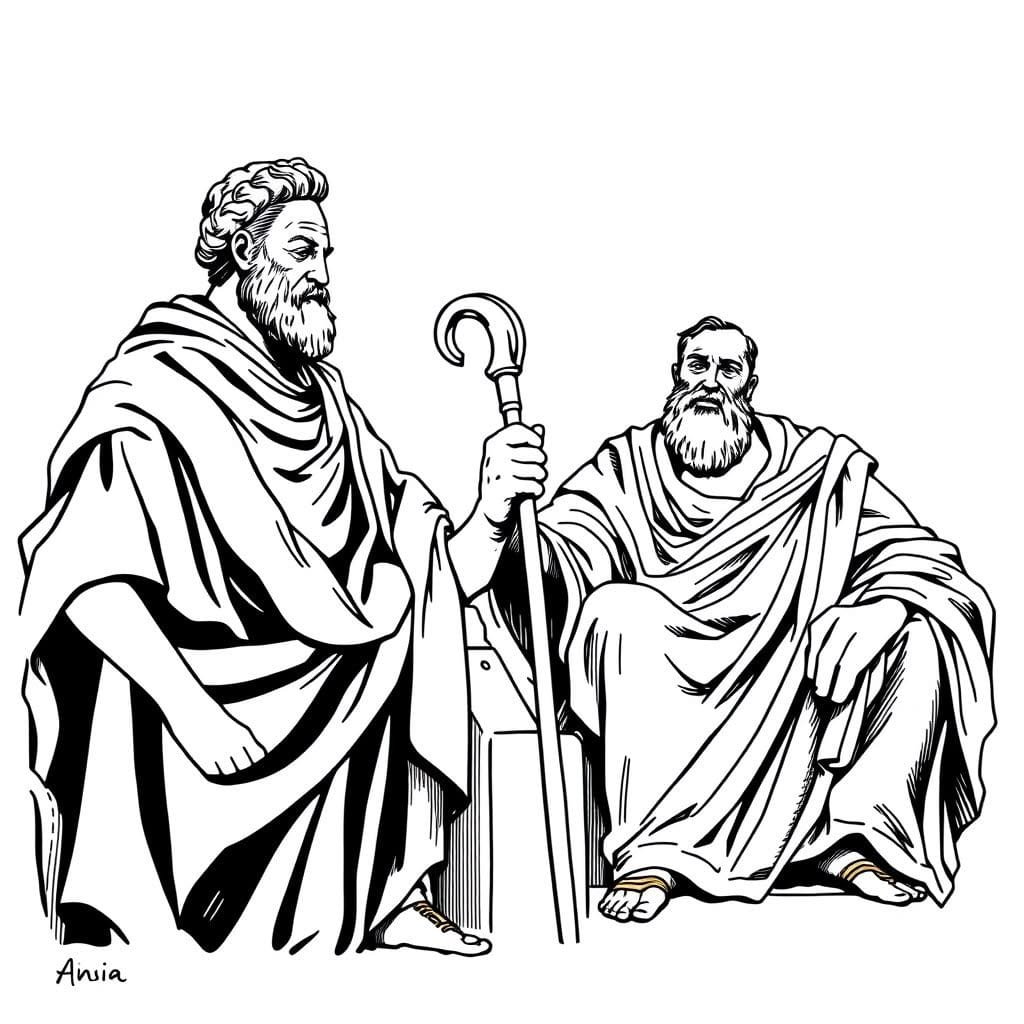
The Origins of Stoicism
Stoicism originated in ancient Greece, founded by Zeno of Citium around 300 BCE. Zeno, initially influenced by the Cynics and other philosophical schools, sought to develop a system that emphasized virtue as the highest good. His teachings laid the groundwork for Stoicism, which would later flourish in both Greece and Rome.
Foundational Principles Established by Zeno
Zeno’s philosophical framework centered on several foundational principles:
- Living in Accordance with Nature: Stoicism asserts that understanding and aligning oneself with the natural order leads to a harmonious life. This principle promotes the idea that humans are rational beings capable of discerning their place within the universe.
- Virtue as the Highest Good: For Zeno, virtue—comprising wisdom, courage, justice, and temperance—was the only true source of happiness. Material wealth or external circumstances were deemed unimportant in comparison to one’s moral character.
- Rationality and Logic: Zeno emphasized using reason to navigate life’s challenges. Rational thought enables individuals to differentiate between what is within their control and what is not, fostering resilience in the face of adversity.
Key Tenets of Stoicism and Their Relevance to Human Flourishing (Eudaimonia)
Central to Stoic philosophy is the concept of eudaimonia, often translated as human flourishing or well-being. This idea encompasses several key tenets:
- Emotional Resilience: Stoics believe that emotions should be managed through rational thought. By understanding that negative emotions stem from false beliefs or judgments, individuals can cultivate a sense of inner peace.
- Acceptance of Fate: The notion of amor fati encourages acceptance of events beyond one’s control. Recognizing that life will present challenges allows individuals to maintain tranquility amidst chaos.
- Focus on Virtue: Achieving eudaimonia hinges on cultivating virtue rather than chasing external accolades. This pursuit fosters personal growth and contributes positively to society.
Zeno’s teachings resonated deeply within Greek culture, emphasizing self-discipline and ethical living. As these ideas spread, they began influencing subsequent generations and eventually found fertile ground in Roman society. The adaptation process would introduce new dimensions to Stoicism while retaining its core tenets.
Each thinker who embraced this philosophy added their unique perspectives, enriching its relevance across different cultural contexts. The stage was set for Stoicism’s transformation into a vital component of Roman thought, ultimately shaping how its principles would address personal conduct and societal norms in an evolving civilization.
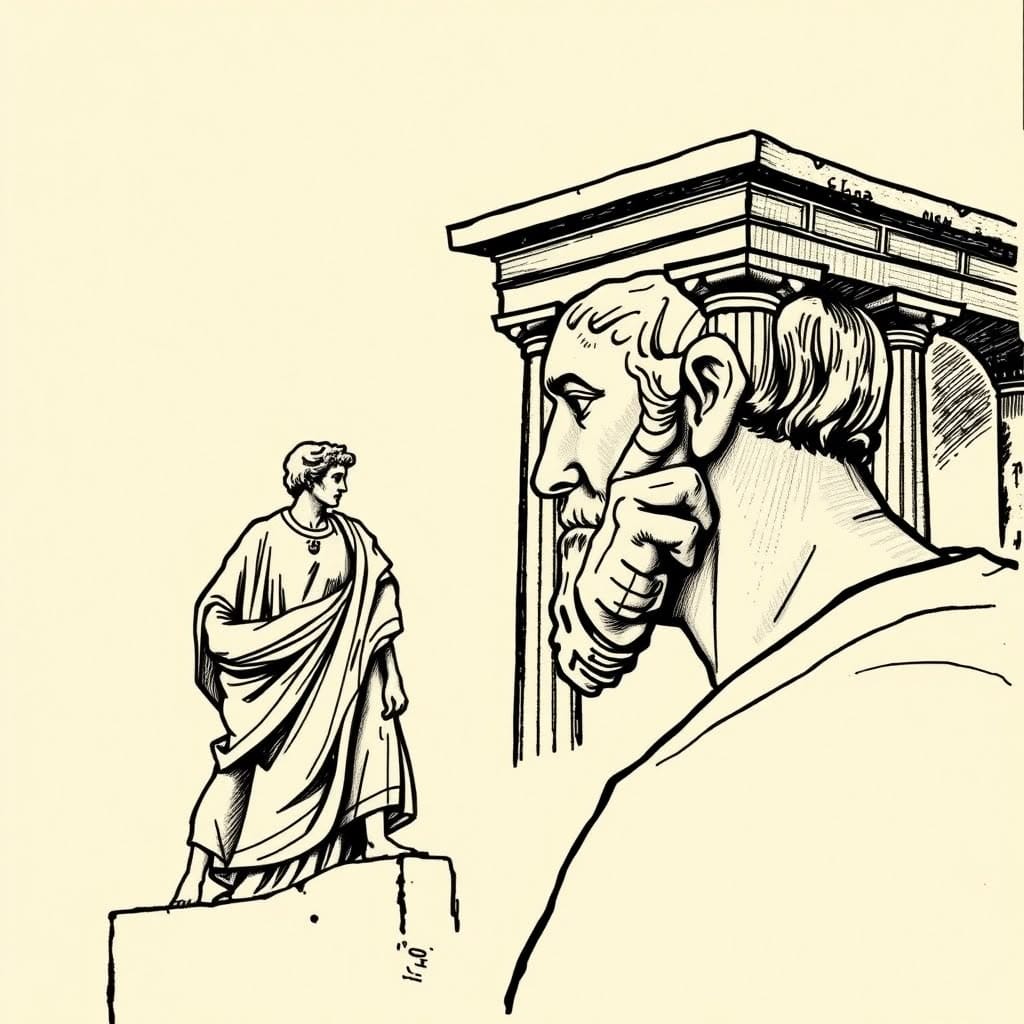
The Introduction of Stoicism to Rome
The introduction of Stoicism to Rome marked a significant shift in philosophical thought. Panaetius of Rhodes emerged as a key figure in this transition. His efforts in the late 2nd century BCE played a crucial role in adapting Stoic principles for a Roman audience.
Panaetius’ Role
- Adaptation of Principles: Panaetius modified the original Greek Stoic doctrines, aligning them more closely with Roman values. He emphasized practical ethics and moral conduct, which appealed to Roman elites who prioritized virtue and duty.
- Influence on Roman Thought: Through his teachings, Panaetius ensured that Stoicism was not only theoretical but also applicable to daily life and governance. His integration of Stoicism into the Roman cultural fabric laid the groundwork for its acceptance.
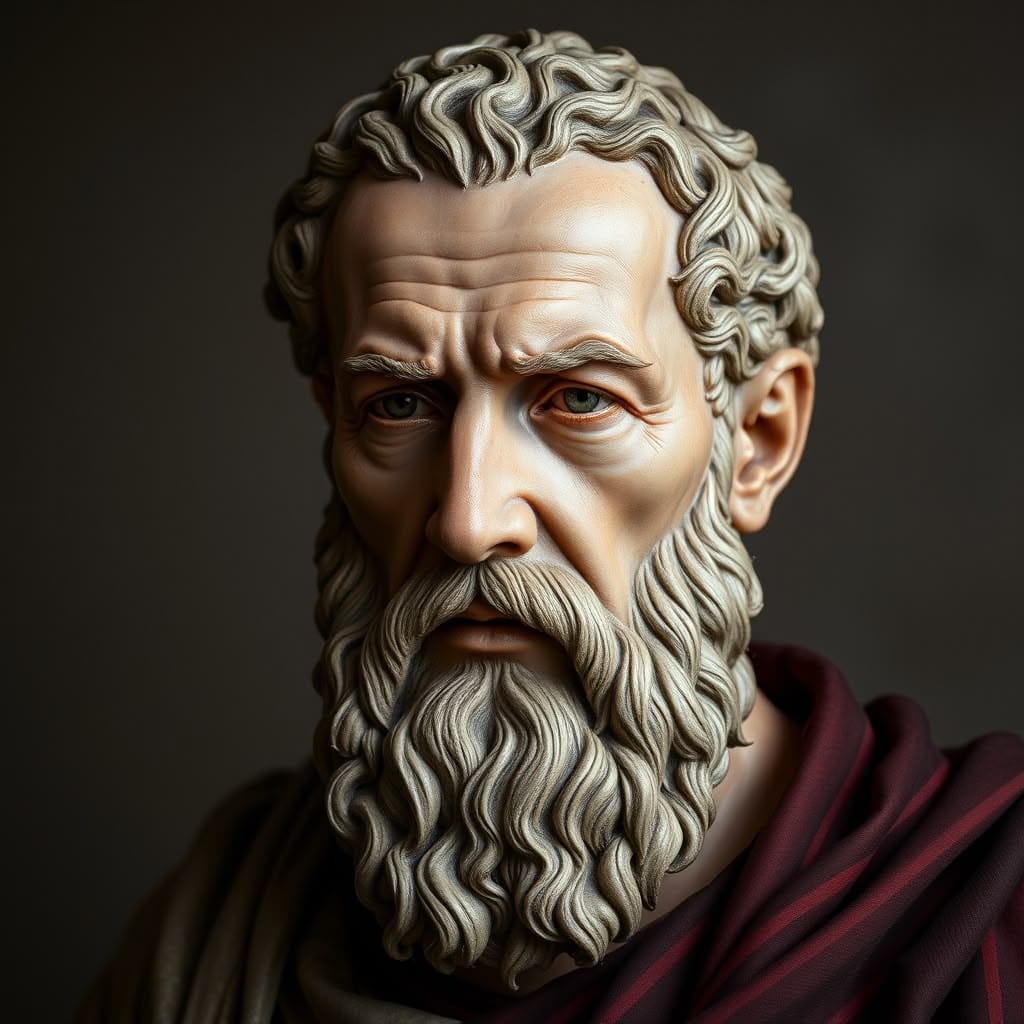
Posidonius’ Contributions
Following Panaetius, Posidonius further developed Stoic ideas around the 1st century BCE. His contributions expanded upon Panaetius’ interpretations, making Stoicism more accessible and relevant to Romans.
- Blend of Sciences and Philosophy: Posidonius combined Stoic philosophy with insights from other fields such as physics and ethics. This interdisciplinary approach resonated with Roman intellectuals who valued comprehensive understanding.
- Cultural Synthesis: He emphasized the compatibility of Stoicism with other philosophical traditions, particularly Platonism. This synthesis allowed for greater acceptance among those who were previously aligned with different schools of thought.
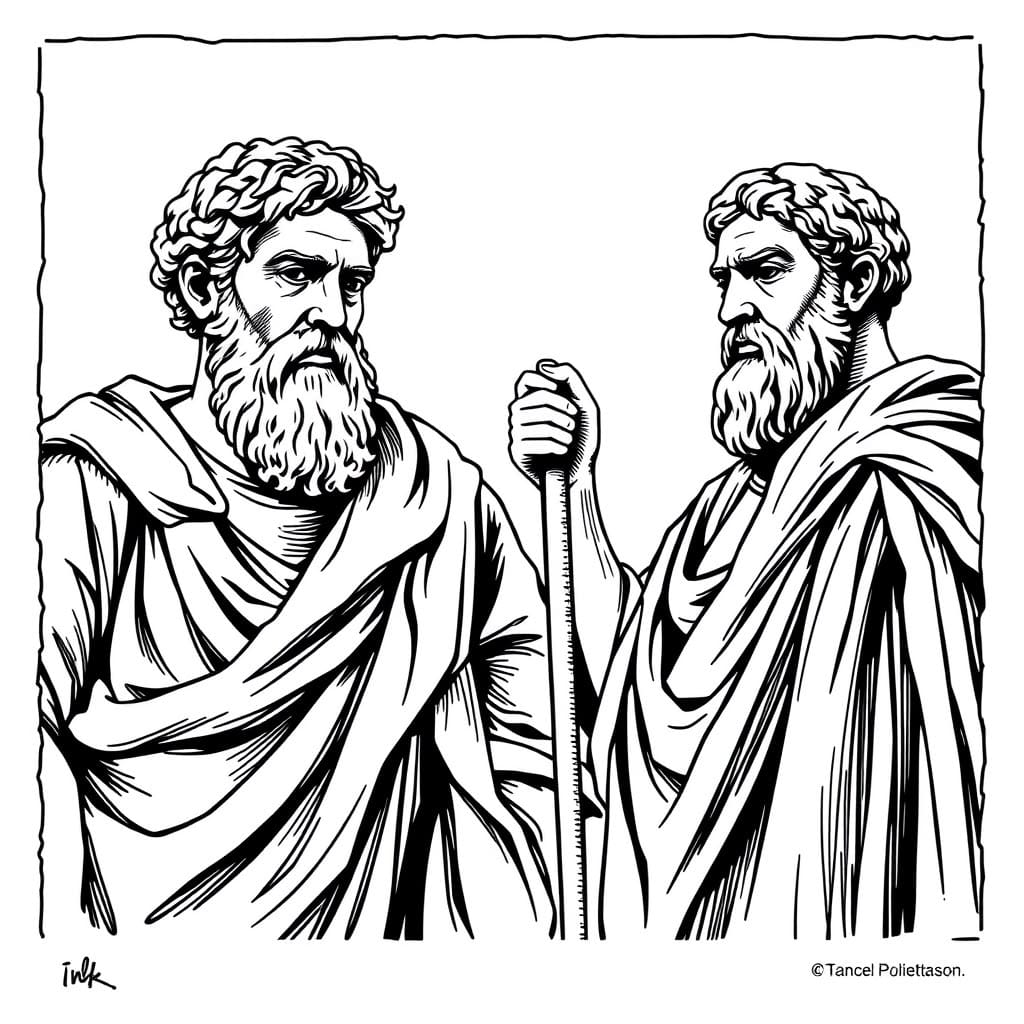
Synthesis of Greek and Roman Values
The adaptation of Stoicism in Rome involved a delicate balance between Greek philosophical ideals and Roman societal norms.
- Focus on Virtue: Both Greek and Roman thinkers valued virtue, but Romans placed a higher emphasis on practical application in public life. The adaptation highlighted how Stoic virtues could guide personal conduct and statecraft.
- Emotional Resilience: The Stoic principle of emotional control found particular resonance among Romans facing political turmoil. This alignment provided a framework for managing emotions amidst challenges.
Roman thinkers like Cicero embraced these adapted principles, integrating them into their own writings that reflected Stoic influence.
- Political Relevance: Cicero articulated how Stoic ideas could inform ethical leadership and civic responsibility, showcasing the importance of philosophy in governance.
The introduction of Stoicism through figures like Panaetius and Posidonius significantly shaped Roman thought, ensuring these ancient principles continued to thrive within the context of Roman society.
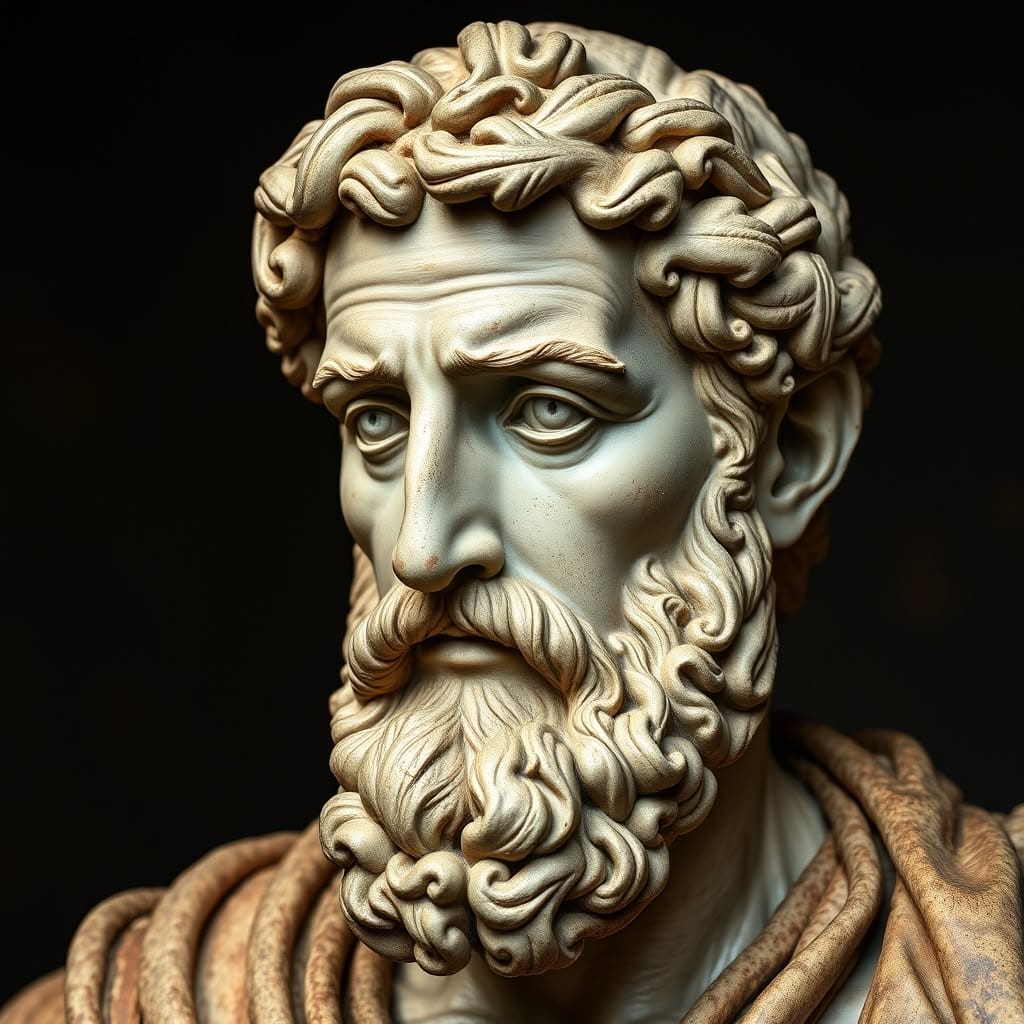
Major Roman Thinkers and Their Contributions
The adaptation of Stoicism in Rome is significantly attributed to the contributions of key thinkers such as Cicero, Seneca, Epictetus, and Marcus Aurelius. Each philosopher brought a unique perspective that aligned Stoic principles with Roman values and societal norms.
Cicero: Integrating Stoicism into Political Life
Cicero played a critical role in introducing Stoic thought into Roman political discourse. His writings reflect a deep understanding of Stoicism, particularly its ethical implications. Key aspects include:
- Moral Responsibility: Cicero emphasized the importance of virtue in public service, arguing that leaders must act with integrity and moral clarity.
- Natural Law: He connected Stoic ideas to the concept of natural law, asserting that true justice is grounded in universal principles accessible through reason.
- Rhetoric and Persuasion: In his orations, Cicero effectively utilized Stoic arguments to persuade audiences, demonstrating how philosophical principles could be applied in real-world politics.
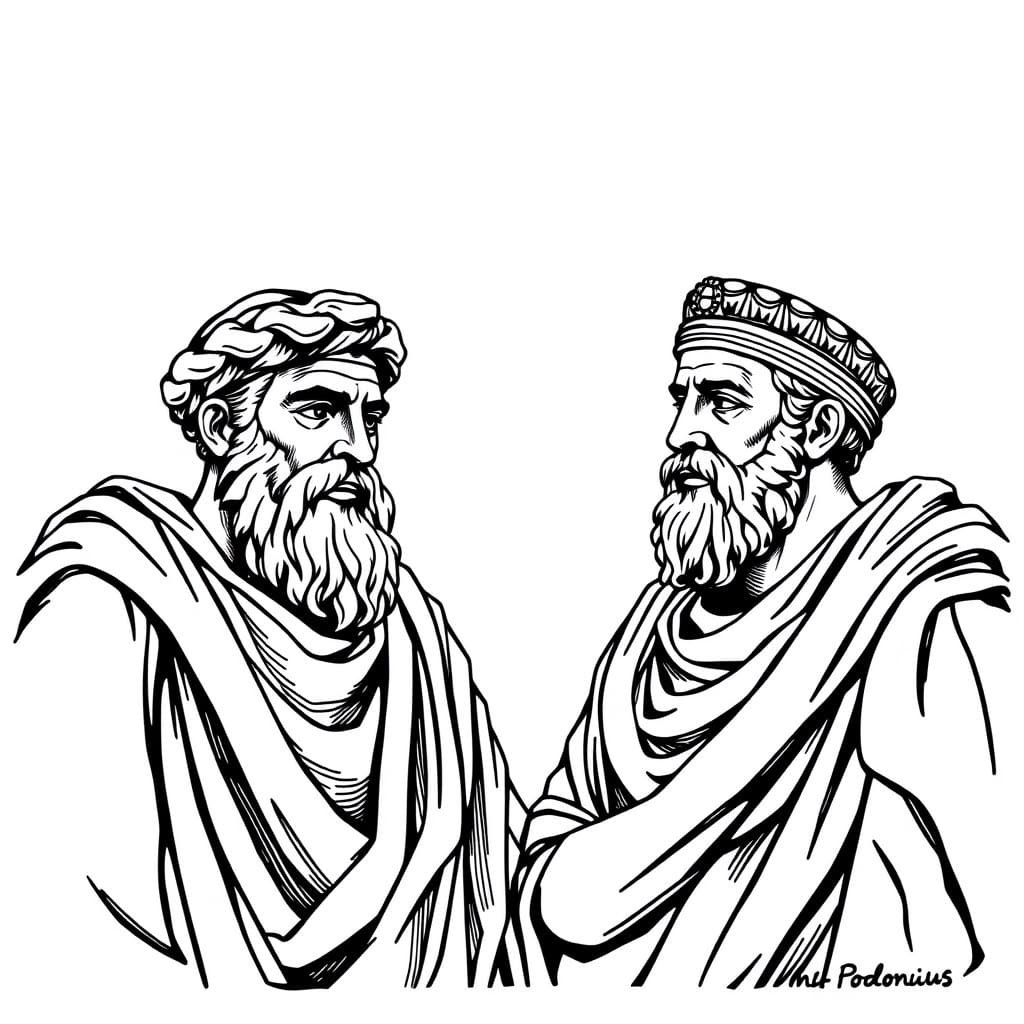
Seneca: Ethics and Practical Philosophy
Seneca’s contributions focused on ethics and moral philosophy. His works provided practical guidance for personal conduct, emphasizing self-mastery and rational living. Notable points include:
- Letters to Lucilius: In these letters, Seneca discusses various Stoic themes such as the importance of inner peace, the value of friendship, and coping with adversity.
- On the Shortness of Life: This essay encourages readers to reflect on time management and the significance of living according to one’s values rather than societal pressures.
- Emotional Management: Seneca advocated for emotional resilience, teaching that one should not be governed by passions but cultivate tranquility through reason.
Epictetus: Freedom through Inner Strength
Epictetus emphasized personal freedom and resilience amidst life’s challenges. His teachings resonate deeply within Stoic philosophy:
- Discourses: Through his discussions, he imparted lessons on distinguishing between what is within our control and what is not—an essential aspect of Stoic thought.
- Enchiridion (Manual): This work serves as a practical guide for applying Stoic principles in daily life, highlighting themes such as acceptance of fate and focusing on personal agency.
- Influence on Later Thought: Epictetus’ emphasis on inner strength influenced later interpretations of Stoicism, particularly regarding mental fortitude in adversity.
Marcus Aurelius: The Philosopher-Emperor
Marcus Aurelius stands out as an embodiment of Stoic ideals in leadership. His reflections offer profound insights into governance and self-discipline:
- Meditations: This collection features personal thoughts that reveal his commitment to virtue, rationality, and emotional control while facing the burdens of leadership.
- Role Model for Leadership: Marcus emphasizes humility and service over power, advocating for leaders to prioritize the common good above personal ambition.
- Daily Reflection: He practiced self-examination regularly, cultivating an awareness of both his strengths and shortcomings as a ruler.
These thinkers collectively illustrate how Stoicism flourished in Rome. Their adaptations resonated with Roman elites who valued virtue and rationality. The integration of Greek philosophical principles into Roman culture laid the groundwork for lasting intellectual traditions that continue to influence modern thought today.
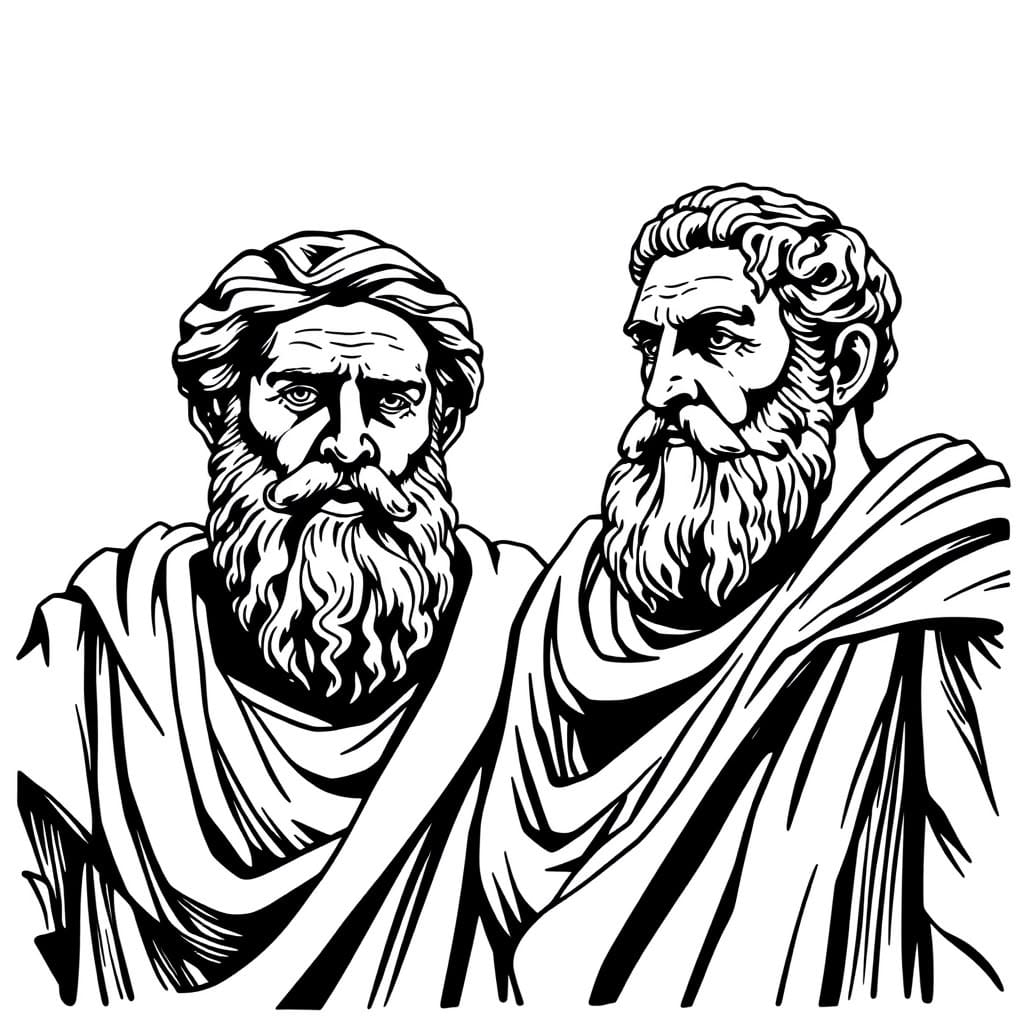
Why Stoicism Attracted Roman Elites
The main ideas of Stoicism—virtue, rationality, and self-control—strongly connected with the values held by the wealthy and powerful in Rome. These concepts weren’t just theoretical; they matched the expectations of Roman society, where being morally upright and making logical choices were crucial for personal and community affairs.
How Stoicism Matched Roman Values
1. Virtue
In Roman culture, virtue meant having honor, integrity, and a sense of responsibility. Stoicism taught that living virtuously is the ultimate goal, motivating people to develop their moral character. For those in power in Rome, showing virtue was vital to command respect and maintain control.
2. Rationality
Being able to think logically was highly valued. The Stoics believed that using reason leads to wise decisions. This idea appealed to the Roman elite who often dealt with complicated political situations that needed careful thought.
3. Self-Control
Controlling one’s emotions was important in a society where how others viewed you could determine your success or failure. The Stoics taught that mastering your feelings brings more freedom and strength. This concept provided a practical way to handle the demands of political life.

The Role of Education in Spreading Stoic Ideas
Education played a significant role in promoting Stoic ideals among the elite. Wealthy families often hired philosophers as tutors for their children, ensuring that they received an education steeped in Stoic teachings. This exposure not only shaped their personal philosophies but also prepared them for leadership roles within society.
How Stoicism Helped Manage Emotions in Public Life
Stoicism provided valuable tools for navigating the emotional landscape of public life. By advocating for emotional detachment from external events, Stoics encouraged individuals to maintain composure in challenging situations. This approach became particularly pertinent during political turmoil or personal crises.
Examples of Influential Figures Applying Stoic Principles
- Cicero: As a statesman, Cicero frequently invoked Stoic principles in his speeches and writings to illustrate the importance of rationality and virtue in governance. His ability to remain composed under pressure served as a model for others.
- Seneca: In his letters and essays, Seneca discussed practical applications of self-control. He shared insights on how he managed his own emotions while navigating the complexities of court life, illustrating how these teachings can be implemented effectively.
- Marcus Aurelius: The philosopher-emperor exemplified Stoic resilience during times of war and political strife. His reflections in “Meditations” reveal how he used Stoic principles to guide his actions, emphasizing duty over emotion.
The appeal of Stoicism extended beyond mere philosophical interest; it offered a robust framework that enabled Roman elites to thrive amid societal pressures and expectations. The integration of these teachings into their lives allowed them not only to succeed personally but also to contribute positively to the greater good of society.
Through its emphasis on virtue, rationality, and self-control, Stoicism helped shape the moral compass of Rome’s elite class. The philosophy became a cornerstone for understanding how one should behave within both private and public spheres, ultimately influencing generations of leaders who sought guidance from its enduring principles.
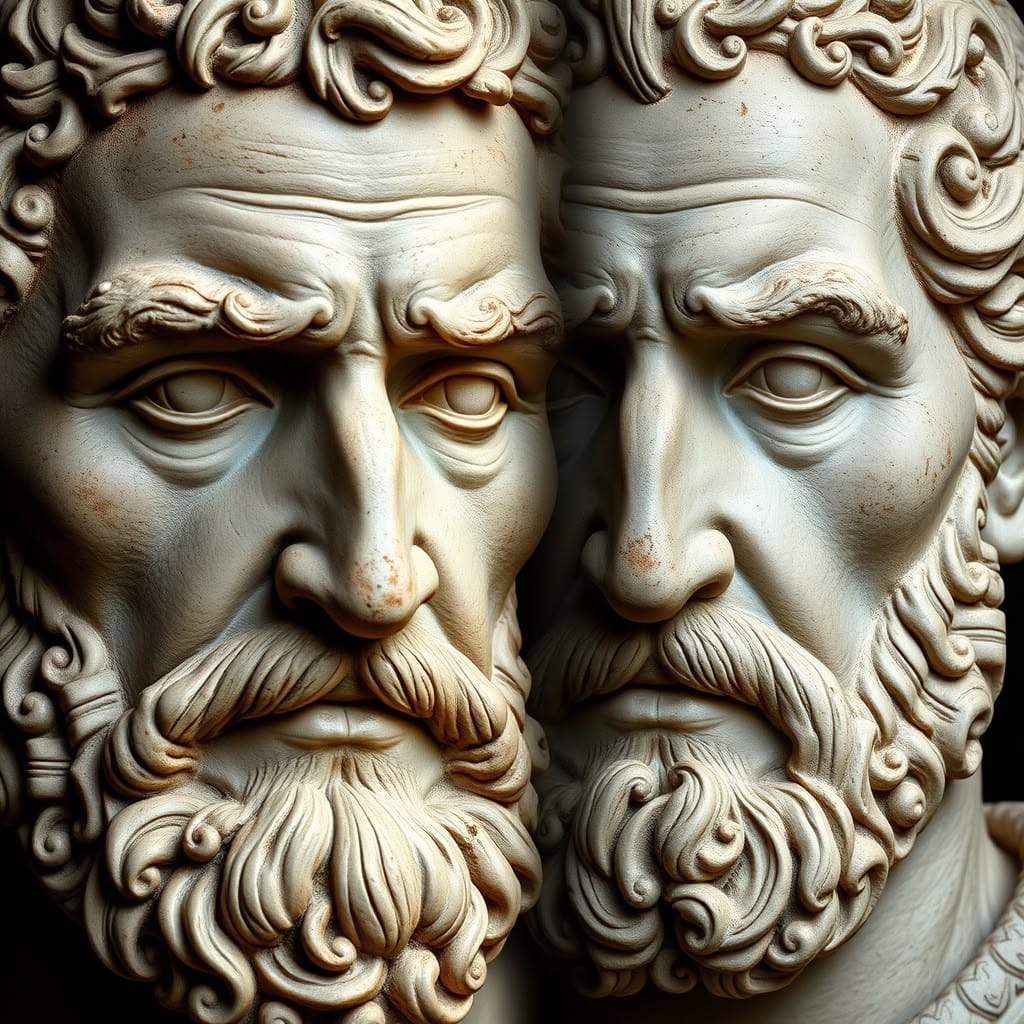
The Lasting Legacy of Stoicism in Western Thought
Stoicism’s influence in Rome marked a significant transition from its Greek origins to a philosophy that shaped Roman society and beyond. The adaptations made by key figures such as Panaetius, Posidonius, Cicero, Seneca, and Marcus Aurelius allowed Stoicism to resonate deeply within the fabric of Roman culture. This legacy has endured through the ages, affecting modern thought in various ways.
Enduring Relevance of Stoic Principles
Virtue and Rationality:
- The core tenets of Stoicism emphasize virtue as essential for a fulfilling life. In contemporary discussions about ethics and morality, these principles continue to provide a foundation for personal conduct and decision-making.
Emotional Resilience:
- Modern psychology often draws upon Stoic ideas to promote emotional resilience and cognitive behavioral techniques. Approaches like reframing negative thoughts align closely with Epictetus’ teachings on managing perceptions and reactions.
Self-Control:
- The emphasis on self-control resonates strongly in today’s fast-paced world. Many individuals look towards Stoic practices to cultivate discipline amidst distractions, drawing from the teachings of Seneca regarding temperance and moderation.
Influence on Modern Philosophy
- Integration into Contemporary Thought:
- Philosophers today explore the integration of Stoic ideas into various ethical frameworks. The rise of positive psychology echoes Stoic beliefs about human flourishing (eudaimonia) through virtuous living.
- Public Life:
- In political discourse, the principles of rationality and virtue maintained relevance during turbulent times in history. Leaders often reflect on Marcus Aurelius’ “Meditations,” utilizing his insights on leadership rooted in Stoicism as guidance for navigating challenges.
The journey of Stoicism from Greek philosophy to Roman thought reveals a profound adaptation that continues to shape our understanding of ethics, resilience, and virtue. Its lasting impact is evident not only in philosophy but also within the realms of psychology and public life. By embracing the core teachings of Stoicism, individuals today can cultivate a mindset aimed at achieving personal growth amid life’s uncertainties. The enduring influence of Stoicism highlights its significance as a timeless guide for navigating both personal challenges and societal expectations throughout history.
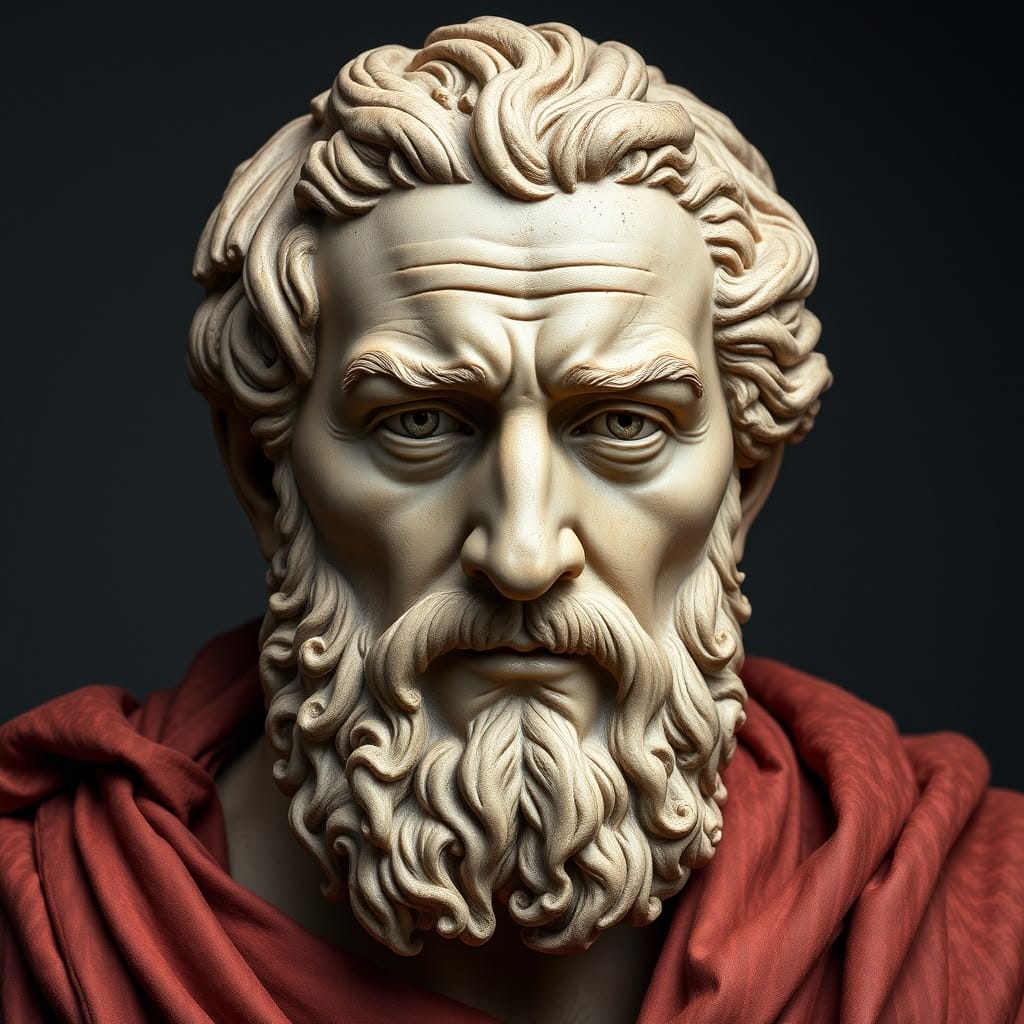
FAQs (Frequently Asked Questions)
What is the origin of Stoicism?
Stoicism originated in ancient Greece, founded by Zeno of Citium. It emphasizes key principles such as virtue, rationality, and self-control, which are essential for achieving human flourishing (eudaimonia).
How did Stoicism become influential in Rome?
Stoicism was introduced to Rome through influential figures like Panaetius and Posidonius. These thinkers adapted Greek Stoic ideas to align with Roman values and political life, making Stoicism appealing to Roman elites.
Who were some major Roman thinkers that contributed to Stoicism?
Key Roman thinkers include Cicero, Seneca, Epictetus, and Marcus Aurelius. Each of these philosophers adapted Stoic principles to address ethical questions and personal conduct relevant to their time.
What aspects of Stoicism appealed to Roman elites?
The emphasis on virtue, rationality, and self-control resonated deeply with Roman elites. These qualities were seen as essential for managing emotions in public life and maintaining societal expectations.
What is the lasting legacy of Stoicism in Western thought?
Stoicism’s legacy endures in contemporary society through its influence on modern psychology and philosophy. Its principles continue to provide valuable insights into personal resilience and ethical living.
How did Marcus Aurelius embody Stoic ideals during his reign?
Marcus Aurelius exemplified Stoic ideals through his writings in ‘Meditations,’ where he reflected on leadership and the application of Stoic principles in governance, emphasizing self-control and rational decision-making.


